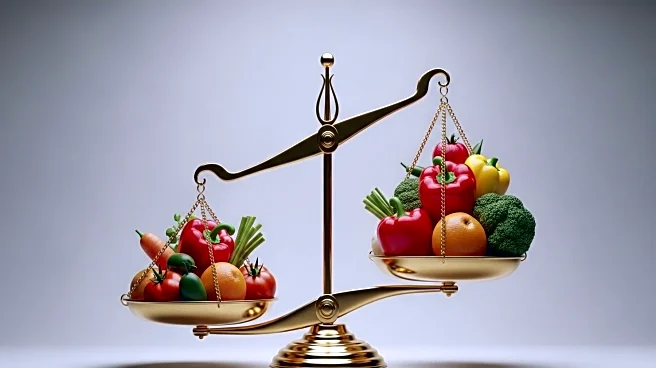What is the story about?
What's Happening?
The UK's inflation rate remained at 3.8% in August, with food prices rising at the fastest pace since early last year. The cost of food and non-alcoholic drinks increased by 5.1% annually, driven by higher prices for beef, butter, milk, and chocolate. Despite the rise in food costs, price growth in other areas, such as airfares, slowed. The British Retail Consortium noted that food inflation is outpacing wage growth, putting financial pressure on families. The Bank of England's rate-setting committee is expected to hold interest rates steady, with inflation remaining above the 2% target.
Why It's Important?
The persistent inflation rate, particularly in food prices, poses challenges for UK households, as wage growth struggles to keep pace. This situation may lead to increased financial strain on families, affecting consumer spending and economic stability. The Bank of England's decision on interest rates will be closely watched, as it could influence borrowing costs and economic growth. The UK's inflation rate is notably higher than in other major European economies, highlighting domestic policy impacts on price levels.
What's Next?
The UK government and the Bank of England face pressure to address inflation and support households facing rising costs. Potential policy measures could include adjustments to tax and spending plans or interventions to stabilize food prices. The ongoing inflationary pressures may also impact political dynamics, with public demand for effective solutions likely to increase.
















